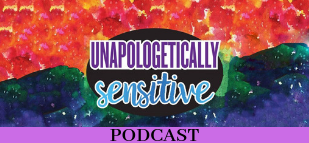I discuss being diagnosed Autistic with a PDA (pathological demand avoidance) profile. I express frustration with the DSM criteria for ADHD and autism, as I don’t see myself in the criteria. I highlight the common misdiagnosis of PDA as oppositional defiant disorder in children, emphasizing the need for a deeper understanding of neurodivergent experiences. I advocate a shift from viewing differences as deficits, and the importance of recognizing the unique perspectives of neurodivergent individuals.
HIGHLIGHTS
Summary
In this episode, Patricia shares her personal reflections on being diagnosed autistic and the challenges she faces with Pathological Demand Avoidance, (PDA). Patricia prefers Pervasive/Persistent Drive for Autonomy instead. She discusses the differences between autism and HSP (Highly Sensitive Person) and emphasizes the importance of understanding the lived experience of autism. Patricia also explores how PDA affects parenting and the need for low-demand environments. She reflects on her struggles with holiday traditions and the importance of self-acceptance and embracing stimming. Additionally, Patricia discusses the impact of seasonal changes and offers insights into managing PDA in daily life. She concludes with a book she enjoyed reading that has coded autistic characters in it.
Some of the challenges and awarenesses about being autistic and having a PDA profile:
- Patricia shares her frustration with the DSM criteria for ADHD and autism, as she does not see herself in the criteria. It was written for white boys who externalize their symptoms. Many late-diagnosed, high-masking folks tend to internalize their presentation, and they go undiagnosed and don’t see themselves in the criteria, which needs to be updated.
- Patricia emphasizes the importance of understanding the lived experience of neurodivergent individuals and the need to look at differences rather than deficits.
- She expresses her passion for wanting researchers and experts in the field of ADHD, autism, and HSP to work collaboratively to find commonalities.
- Patricia talks about the challenges of being formally diagnosed with autism and how it has led to a year of “Ahas.”
- She shares insights into how PDA shows up in her life, including anticipating things that could go wrong and giving people permission to not respond.
Takeaways
Understanding the lived experience of autism is crucial for creating a supportive environment.
Pathological Demand Avoidance (PDA) also known as Pervasive/Persistent Drive for Autonomy, can be misdiagnosed as oppositional defiant disorder and is characterized by nervous system dysregulation.
Parents with PDA may face challenges in parenting neurodivergent children and may benefit from creating low-demand environments.
Embracing self-acceptance and allowing oneself to stim can lead to a greater sense of joy and freedom.
Seasonal changes can impact mood and energy levels, and it’s important to listen to one’s body and practice self-care.
Anticipating demands and setting boundaries can help manage PDA and reduce stress.
The book ‘Lessons in Chemistry’ features characters who are coded as autistic and explores themes of feminism and neurodiversity.
Chapters (please adjust times with the addition of the introduction)
00:00 Introduction and Personal Reflections
01:58 Understanding PDA and Autism
06:49 Challenges of Parenting with PDA
08:18 Navigating Holiday Traditions
16:08 Embracing Stimming and Self-Acceptance
17:32 Coping with Winter and Seasonal Changes
24:05 Managing PDA in Daily Life
27:31 Anticipating and Resisting Demands
28:52 Book Recommendation: Lessons in Chemistry
30:17 Closing Remarks and Invitation
PODCAST HOST
Patricia was a Licensed Clinical Social Worker, but is now exclusively providing coaching. She knows what it’s like to feel like an outcast, misfit, and truthteller. Learning about the trait of being a Highly Sensitive Person (HSP), then learning she is AuDHD (autistic and ADHD), with a PDA profile, helped Patricia rewrite her history with a deeper understanding, appreciation, and a sense of self-compassion. She created the podcast Unapologetically Sensitive to help other neurodivergent folks know that they aren’t alone, and that having a brain that is wired differently comes with amazing gifts, and some challenges. Patricia works online globally working individually with people, and she teaches Online Courses for HSPs that focus on understanding what it means to be an HSP, self-care, self-compassion, boundaries, perfectionism, mindfulness, communication, and creating a lifestyle that honors you
LINKS
HSP Online Course–https://unapologeticallysensitive.com/hsp-online-groups/
Online HSP Course Materials (no group included) https://patriciayounglcsw.com/product-category/hsp-classes/
Receive the top 10 most downloaded episodes of the podcast– https://www.subscribepage.com/e6z6e6
Sign up for the Newsletter– https://www.subscribepage.com/y0l7d4
To write a review in itunes:
- click on this link https://itunes.apple.com/us/podcast/unapologetically-sensitive/id1440433481?mt=2
- select “listen on Apple Podcasts”
- chose “open in itunes”
- choose “ratings and reviews”
- click to rate the number of starts
- click “write a review”
Website–www.unapologeticallysensitive.com
Facebook– https://www.facebook.com/Unapologetically-Sensitive-2296688923985657/
Closed/Private Facebook group Unapologetically Sensitive– https://www.facebook.com/groups/2099705880047619/
Instagram– https://www.instagram.com/unapologeticallysensitive/
Youtube– https://www.youtube.com/channel/UCOE6fodj7RBdO3Iw0NrAllg/videos?view_as=subscriber
Tik Tok–https://www.tiktok.com/@unapologeticallysensitiv
e-mail– unapologeticallysensitive@gmail.com
Show hashtag–#unapologeticallysensitive
Music– Gravel Dance by Andy Robinson www.andyrobinson.com

